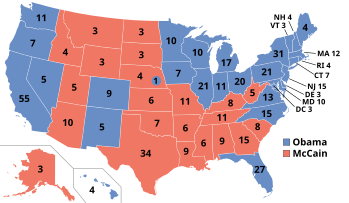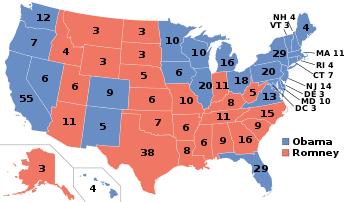The discussion about conservative posters here interests me. Here is an attempt at a fairly neutral political conversation (if such a thing can be envisioned). The purpose for this is to see if I can put myside in the shoes of the other side and see history from their viewpoint (as Bob Butler has tried to do on the gun control issue).
Below I give lists of what in IMO is as list of American political greats from a Red vs. Blue perspective. Please comment. Note, George Washington isn't included because I figured both sides would claim him, so you can mentally append him to the top of each list. Also, I rule out any president who didn't serve a full term as having had too-short of a time in power.
Red Political Greats:
Jefferson, Jackson, Polk, Coolidge, Reagan
Blue Political Greats:
Hamilton, Lincoln, T. Roosevelt, F Roosevelt, Eisenhower
I tired to pick at least one great from each saeculum. Lots of good choices for the 1794-1865 saeculum on both sides. I picked the biggest guns, Lincoln of course, and Hamilton. Jefferson and Jackson seem a pretty good fit for today's conservatives. Polk may be a bit of a surprise. I chose him because the Red side has been more hawkish than the Blue in recent decades and Polk is the greatest of American conquerors having seized California, Arizona and New Mexico from Mexico.
1865-1946 saeculum: For the Blues, this was easy, both Roosevelts. T. Roosevelt was founder of the Progressive party and magazine, FDR is probably the greatest of all for the Blues. Wilson was a racist and fought a war that accomplished nothing except getting a lot of doughboys killed. Grover Cleveland was a conservative, even for his day, so he doesn't qualify.
The Red side was harder. I picked Coolidge because he left office as a success, never lost an election, served a full term, and has a decent rep from modern conservatives (he was Reagan's favorite president). Would conservatives here prefer McKinley or Taft? Grant was pretty corrupt and the other guys in the 1865-1946 saeculum either did not serve full terms or are really forgettable.
For the 1946-present it was easy for the Red: Reagan. For the blues it was a lot harder. Kennedy didn't serve a full term so he's disqualified. Johnson is no good because of Vietnam. Obama, its too soon. Nothing Clinton accomplished still remains, and he was impeached. Carter has no respect as a president (although a lot as a man). This leaves Eisenhower and Truman. I chose the former because Eisenhower was more recent (and still a long time ago). Our side really needs a hero
So what do people think?
- Join Date
- Jul 2001
- Location
- Kalamazoo MI
- Posts
- 4,501







